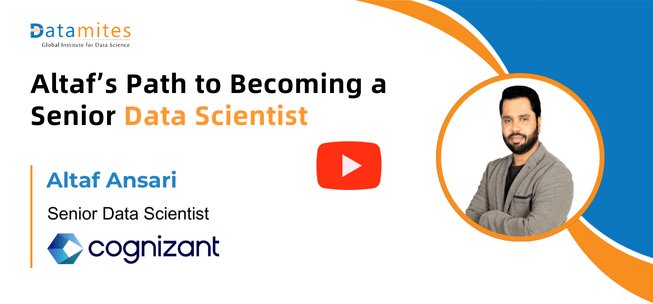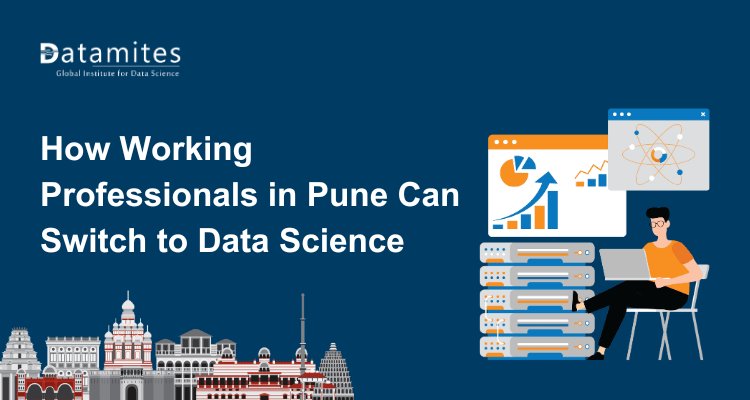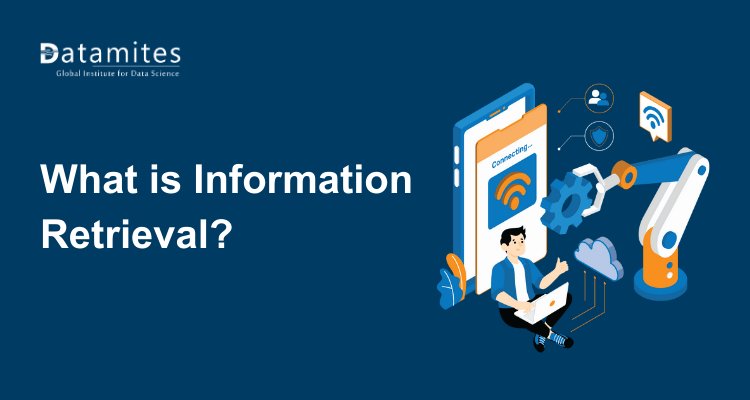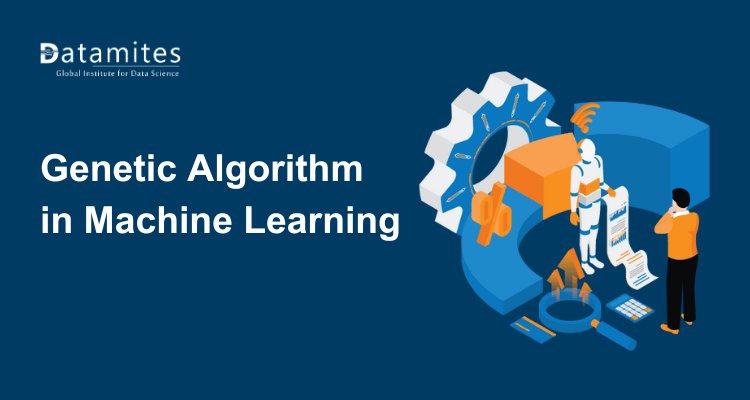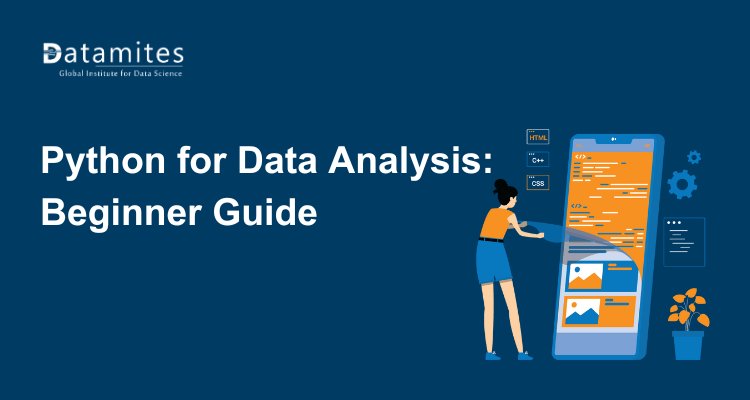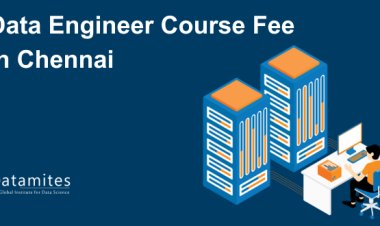Altaf’s Path to Becoming a Senior Data Scientist
Altaf’s journey showcases how dedication, continuous learning, and hands-on experience can transform an aspiring professional into a Senior Data Scientist. It highlights the skills, projects, and career strategies that paved his path to success.
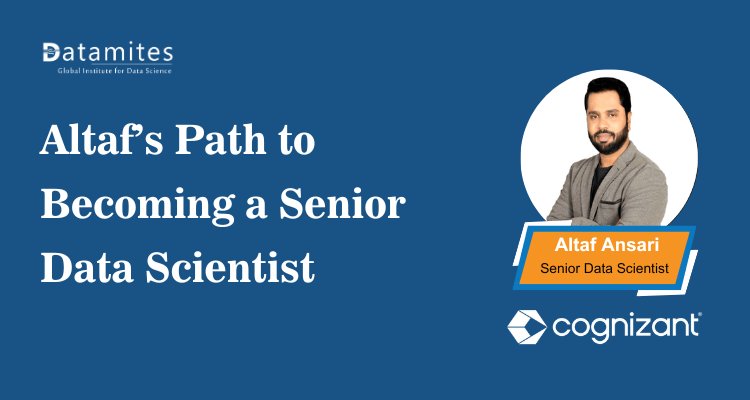
Data science is rapidly growing, but breaking into it can be tough for non-IT professionals. Altaf, a DataMites alumnus, transitioned from automobile engineering to becoming an NLP and data science professional at top IT companies like Capgemini and Cognizant. His journey highlights the importance of structured learning, hands-on projects, and mastering skills like Python, Machine Learning, and NLP.
Altaf also emphasizes communication, problem-solving, and continuous learning as keys to success. His story proves that with the right mentorship and practical experience, a career switch into data science is achievable. Watch DataMites success stories to see how structured training can help aspiring professionals build a rewarding career in data science.
How Altaf Successfully Transitioned into a Data Science Career with DataMites
Discover how Altaf shifted into data science through structured training, hands-on projects, and expert mentorship.
Q1: Can you tell us a little about your background and how you got started in data science?
I graduated in 2012 with a degree in automobile engineering from the University of Mumbai. I worked in quality assurance for an automotive manufacturing plant for four years, mainly focusing on statistical process control. Later, due to personal reasons, I took a career break. When I decided to rejoin the workforce, I noticed data science was booming. I realized my statistical background could help me transition into IT, so I explored data science and joined DataMites for an internship, which eventually led to my first role as a data scientist at Capgemini.
Q2: How did your internship with DataMites help you get your first role?
During the internship, I worked on real projects and had regular doubt-clearing sessions. That practical experience helped me craft a strong resume, which led to interview calls. Although I didn’t crack my first few interviews, I noted the questions and gaps I faced, which eventually helped me succeed at Capgemini.
Q3: What kind of projects did you work on at Capgemini?
I worked on three projects, two classical machine learning classification projects and one NLP-based project. I also got certified in Microsoft Cloud and the DataIQ platform, which added value to my work.
Q4: How did you continue learning after joining the industry?
My first projects aligned well with the industry trends at that time. But as technology evolved, I realized the importance of learning big data tools and cloud computing. For example, my current projects involve processing millions of records on Databricks clusters, which pandas cannot handle efficiently. Continuous learning and upskilling are crucial to staying relevant.
Q5: How did you approach the challenge of learning on your own during the pandemic?
Initially, I joined an online class in Bangalore, but the instructor shut down the course. I didn’t give up, I used YouTube, job descriptions, and LinkedIn to study independently. Practical exposure was tough, but a friend introduced me to DataMites, where I enrolled in an internship program, which gave me the hands-on experience I needed.
Q6: What skills beyond technical knowledge helped you in your career?
Communication and analytics go hand in hand. Don’t hesitate to speak up in meetings. Listen actively to others, observe their communication style, and learn proper terminology. Engaging confidently in discussions with clients and colleagues is a skill that grows with practice.
Q7: How has NLP become part of your specialization?
I started with basic NLP in my early projects, then moved to using Transformer models from Hugging Face for embeddings and clustering. Currently, I am also exploring generative AI to expand my expertise. NLP has become my specialty, and I continue to build on it.
Q8: Can you describe the kind of projects you work on now?
One project involved analyzing customer reviews for a consumer goods client. We used NLP techniques to preprocess the reviews, performed sentiment analysis, and clustered sentences to identify product triggers (positive factors) and barriers (negative factors). This data was then visualized in Power BI for the client.
Q9: Will AI replace jobs in the future?
No. AI can speed up tasks, like generating code, but human intervention is essential for understanding domain-specific problems, gathering requirements, and continuously improving solutions. AI enhances efficiency but doesn’t replace humans.
Q10: What challenges did you face early in your career?
My career had a few hurdles, a four-year break, learning data science independently, and handling interviews without formal guidance. The key was perseverance. I built a question bank from failed interviews, leveraged practical project experience, and sought help from mentors whenever needed.
Q11: How did you overcome the challenge of not having a structured learning path initially?
I relied on scattered online resources, job descriptions, and networking to understand what skills were required. Eventually, joining DataMites’ structured internship gave me the practical exposure that I lacked earlier.
Q12: How important is teamwork and mentorship in your growth?
Extremely important. Whenever I get stuck with new data science tools or projects, I reach out to seniors or colleagues. They guide me, helping me remove blockers efficiently. Challenges are inevitable, but having a supportive team makes a huge difference.
Q13: What advice do you have for young professionals entering data science?
Don’t hesitate to speak in meetings, actively listen, and continuously upskill. Treat every interview, every project, and every challenge as a learning opportunity. Build practical experience wherever possible, and stay persistent.
Q14: How do you see the field of data science evolving?
Big data, cloud computing, NLP, and generative AI are the future. Projects now require handling large datasets on cloud platforms from day one. Being adaptable and continuously learning new technologies is the key to staying ahead.
Q15: Any final words for aspiring data scientists?
Your background doesn’t limit your potential. Whether you come from IT or non-IT fields, practical exposure, structured learning, communication, and persistence can help you carve a successful career in data science.
Refer to these articles:
- How Darshan Shaped His Career Path in Data Science
- How Samir Built His Career as an NLP Data Scientist
- How Himanshi Built a Successful Data Science Career
Key Takeaways from Altaf’s Data Science Journey.
Here are the main lessons and insights from his experience that can help anyone aiming to grow in data science:
- Non-IT Transition: Altaf moved from automobile engineering to data science, proving domain flexibility with the right skills and mindset.
- Structured Learning: Programs like DataMites provide practical exposure and bridge knowledge gaps more effectively than self-learning.
- Practical Experience: Hands-on projects are crucial for understanding real-world applications and building a strong resume.
- Overcoming Career Breaks: Persistence and strategic learning help navigate gaps in employment.
- Interview Strategy: Creating a personal question bank from failed interviews aids preparation.
- Soft Skills: Communication, teamwork, and client interaction are as vital as technical skills.
- Specialization in NLP: Focusing on niche areas like NLP, Transformers, and generative AI adds value.
- Big Data & Cloud: Handling large datasets on cloud platforms requires continuous upskilling.
- AI as a Tool: AI enhances workflows but cannot replace human intervention.
- Mentorship: Guidance from seniors and mentors helps overcome project challenges.
- Adaptability: Staying updated with tools and trends ensures long-term success.
- Persistence & Confidence: Speaking up, active listening, and seeking growth are key for advancement.
- Career Roadmap: Structured learning, projects, certifications, and proactive communication accelerate transitions.
Refer to these articles:
- Data Science Course Fees in Kolkata
- How to Become a Data Scientist in Kolkata?
- Data Science course fee in Delhi
- Why Data Scientist Career in Delhi
Altaf’s journey shows that breaking into data science isn’t about where you start, it’s about consistent learning, practical experience, and staying adaptable. From automobile engineering to NLP specialization, his story is a roadmap for anyone looking to transition into data science successfully.
If you’re starting your journey in data science or planning a career shift, let Altaf’s story guide you: begin with the fundamentals, work on practical projects, remain consistent, and keep expanding your skills. With the global data science platform market expected to grow from USD 15.2 billion in 2024 to USD 144.9 billion by 2033 (IMARC Group), now is the perfect time to upskill. As industries generate massive volumes of data, the demand for skilled data science professionals is accelerating, making it one of the IT courses in demand today.
Altaf’s successful transition from an automobile engineering background to data science was made possible through the structured training and support he received at DataMites. With beginner-friendly courses designed for non-IT professionals, Altaf mastered key skills in Python, Machine Learning, and NLP, eventually landing his role as a Data Scientist. Accredited with globally recognized certifications like IABAC and NASSCOM FutureSkills, DataMites equips learners with hands-on project experience, expert mentorship, and placement assistance to bridge the gap between learning and employment. Choosing data science course in Kolkata, Bangalore, Hyderabad, Pune, Mumbai, Chennai, or Delhi can open doors to a rewarding career.
Whether you’re a fresher, a professional from a different field like Altaf, or exploring a career switch, DataMites makes high-quality data science education accessible. With both online and offline centers, DataMites offers data science courses in Delhi, Mumbai, Bangalore, Pune, Chennai, Ahmedabad, Coimbatore, and Hyderabad, along with flexible online learning options. Altaf’s journey demonstrates that with the right guidance and practical experience, transitioning into data science is not only achievable but also a strategic move for a future-ready career.
